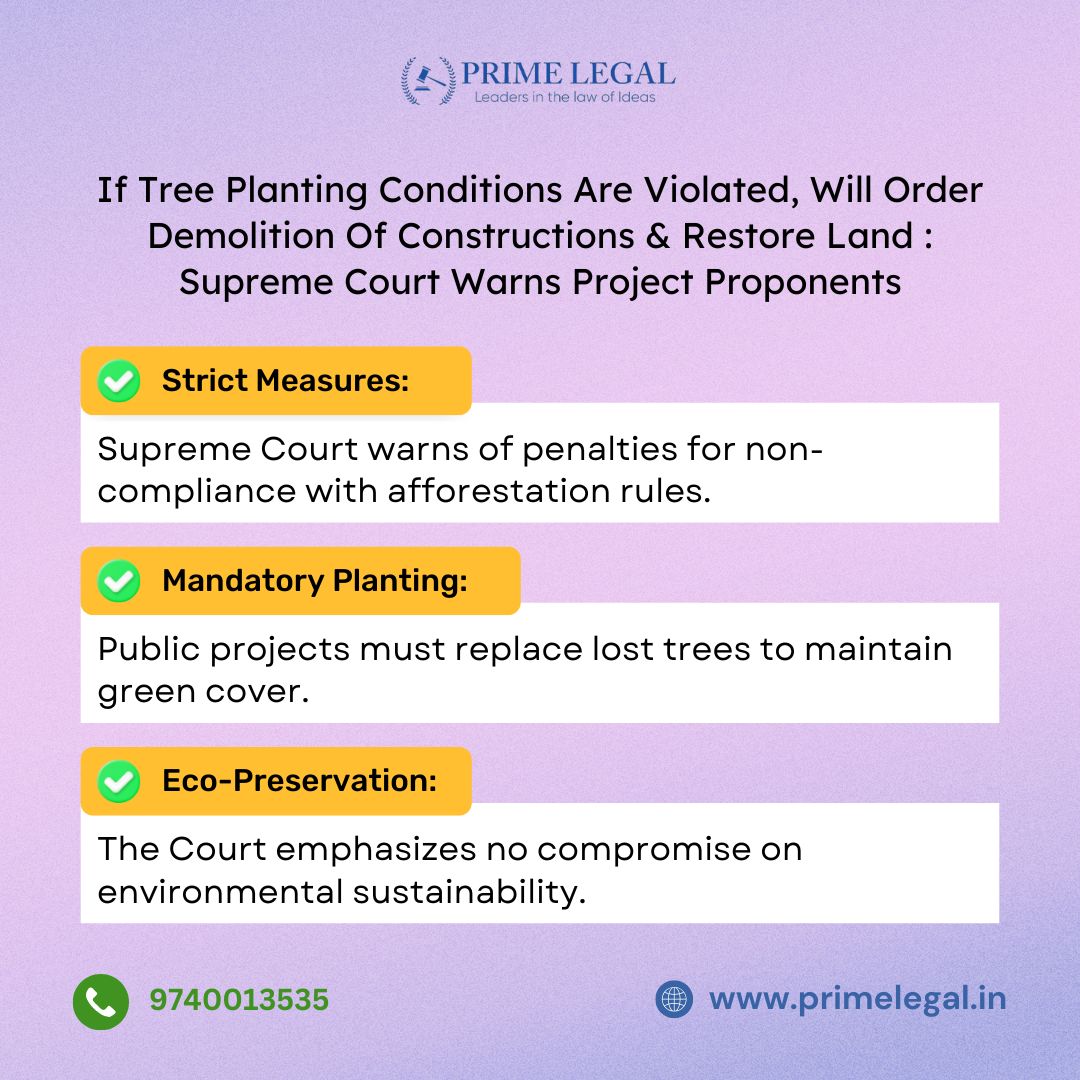INTRODUCTION
A stern warning has been given by the Supreme Court of India to project proponents regarding the non-compliance of conditions for compensatory afforestation imposed during tree felling permissions. The court further elaborated that it would put in place proper measures, which include restoration to its original position or imposing of costs or even initiate contempt proceeding, in the case of non-compliance. This judgement demonstrates the court’s concern for maintaining the green cover and enforcing people’s legal responsibility for their environmental responsibilities in public projects.
BACKGROUND
A bench of Justice Abhay Oka and Justice Augustine George Masih was dealing with the issue of enhancing the green cover in Delhi, focusing on compliance with court orders related to compensatory afforestation efforts when permissions for tree felling are granted. Compensatory afforestation becomes an issue when tree cutting is authorised for the development activities. project proponents are to plant new trees which will ensure replacement of the green cover that has been lost. However, the observance of such conditions in practice has often been miserably inadequate. In the light of such environmental challenges in rapidly urbanizing regions like Delhi, the Supreme Court guided by reports from the Central Empowered Committee (CEC), has consequently become vigilant enough to monitor and enforce afforestation requirements toward ecology balance.
KEY ASPECTS
- The Supreme Court went to the extent of declaring that if the state does not comply with the terms of compensatory afforestation, then stern measures would include recompensing the land by returning them to their original condition and also hefty penalties.
- The National Highways Authority of India has been directed to file an affidavit on or before November 14, 2024 stating compliance with the requirements of afforestation and having planted 37,000 trees. In addition, the court has allowed four weeks to the reporting compliance of afforestation conditions in respect of the developed premises in the management of Jaypee Infratech. The court directed the Rail Vikas Nigam Limited to plant 50,000 trees. Well, they had paid to the forest department already and stopped further work due to non-compliance.
- The Supreme Court emphasized on the fact that the reduction of cutting trees and compensation through afforestation should be made compulsory for public projects, making the entities such as Delhi Government and Delhi Development Authority liable for deforestation or felling unauthorized trees.
- The Court has directed all the proponents of the project to file the data about compliance with afforestation, which can lead to contempt cases, coming across as a part of a larger trend toward transparent environmental governance.
Conclusion
The firm stance of the Supreme Court towards compensatory afforestation indicates the intent of the court to enforce environmental responsibility upon development projects. Through the threat of restoring lands into their original state and imposing heavy penalties, the Court gives a clear message that there cannot be compromised on ecological preservation in the name of urban development. This judgment, thus, emphasizes the need for a balanced approach that ensures infrastructural growth along with environmental sustainability.
“PRIME LEGAL is a full-service law firm that has won a National Award and has more than 20 years of experience in an array of sectors and practice areas. Prime legal fall into a category of best law firm, best lawyer, best family lawyer, best divorce lawyer, best divorce law firm, best criminal lawyer, best criminal law firm, best consumer lawyer, best civil lawyer.”
WRITTEN BY- TEJASRI RAO


